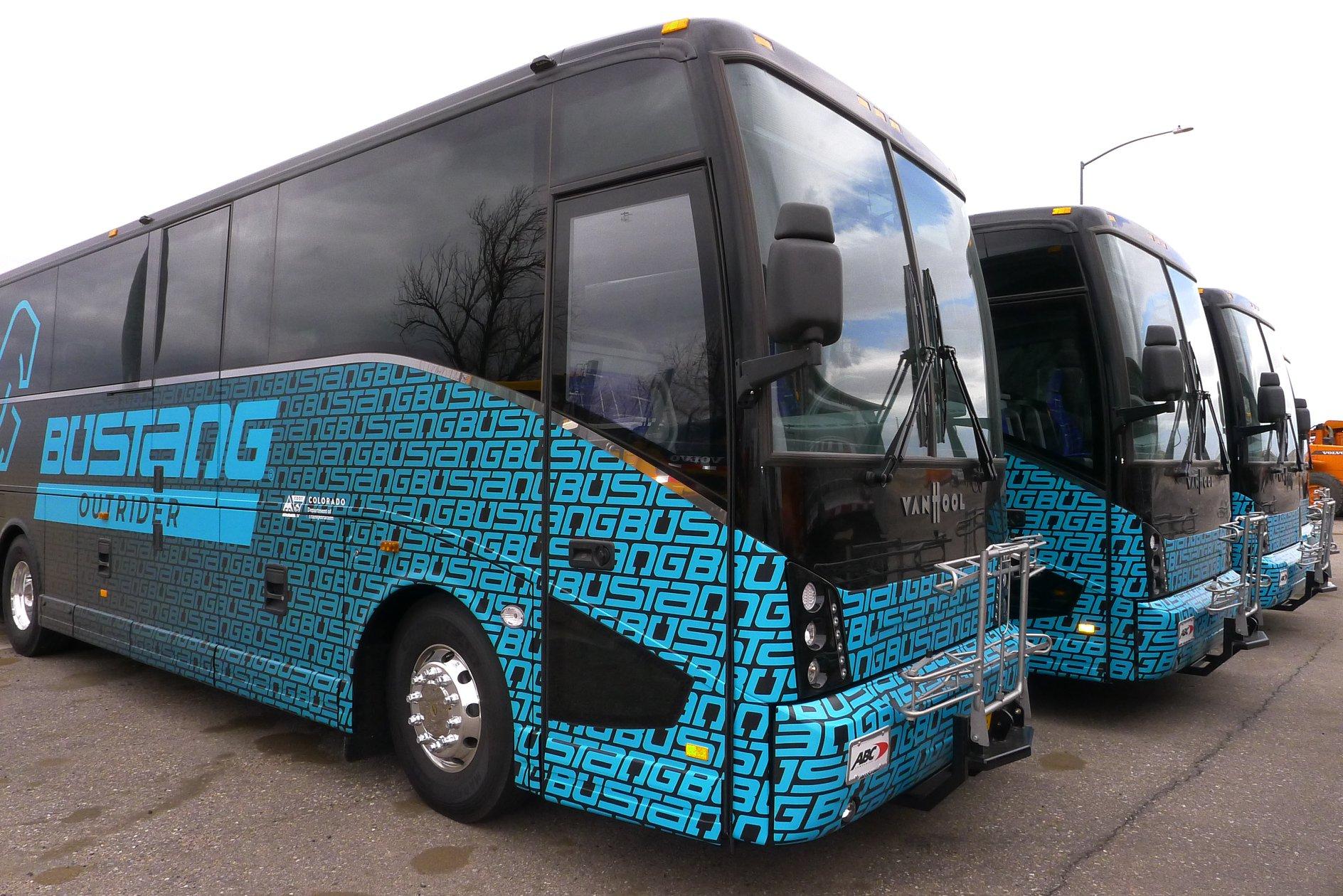
The Colorado Department of Transportation plans to add four new bus lines to its Outrider service in 2021: Trinidad to Pueblo, Sterling to Greeley, Telluride to Grand Junction, and Craig to Denver.
The plan, which will go before CDOT's transportation commission later in January for final approval, would mark a significant expansion of the agency's statewide bus network.
It started in 2015 with Bustang, which provides service up and down the Front Range and I-70 corridor. In 2018, CDOT launched Outrider service between cities and smaller locales like Lamar on the Eastern Plains and Durango in the Four Corners region.
The goal is to allow residents in rural areas to make same-day trips to metro areas for medical appointments, shopping, or other business, said Michael Timlin, Bustang’s operations manager.
"I think it's doing quite well," Timlin said.
Ridership on the four existing Outrider lines — about 2,000 passengers a month — is a fraction of what it is on the main Bustang lines. But it's been welcomed by smaller towns that had little or no transit service prior to Outrider's arrival.
“CDOT did a really good job stepping up and taking over," Las Animas Mayor Jim Collins told CPR News in 2019.
In Craig, a four- to five-hour drive from Denver, city manager Peter Brixius said new service would be critical for residents in the northwest Colorado city — especially those with lower incomes.
"It gives the residents here an economical option," he said.
But the new lines mean cuts, too. Right now, Greyhound runs buses daily between Salt Lake City, Utah and Denver through Craig on U.S. 40. That federally subsidized service will soon end because of declining ridership, Timlin said, though Greyhound service between the two cities on I-80 will continue.
Instead, Timlin said, Utah will probably run buses from Vernal to Salt Lake City and Colorado will do the same between Craig and Denver. That will leave a gap of about 100 miles along U.S. 40 without bus service.
"There are a few communities, but they are small," Timlin said. "Not a whole lot there."
Dinosaur, Colorado, a town of just over 300 just a few miles from the Utah border, is one of those communities. Mayor L.D. Smith, or "Smitty," as he said the locals call him, said losing bus service will be a blow.

"There's really nothing we can do about it at this point," Smith said.
Not many people in Dinosaur used the Greyhound service, Smith said. But he said it helped connect the town to the rest of the state and country.
In one example of that seven years ago, a traveler's car broke down in Dinosaur. Smith and others in town chipped in and bought a bus ticket so he could continue his journey to Washington state.
"He put his stuff on the bus — he even had a dog with him — and down the road he went," Smith said. "What would I do now? I would have to take him to Washington."
Ridership on the Greyhound line fell from 10,368 in 2015 to about 7,700 in 2019, CDOT said. That drop in fare revenue meant Greyhound had to ask for more subsidies from the Federal Transit Administration in the intervening years — more than $550,000 in 2019 — to keep the line going.
Smith said he understands why the service is ending. But he called it an example of how businesses in America are ignoring the needs of communities like his.
"Everything that any company does is designed for the masses, with reason. The more people that are out there, the more people you have to sell your wares to," Smith said. "That the little town of yesteryear is just gone. And I really believe that in my heart. It's a shame."









